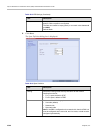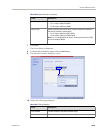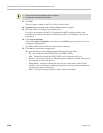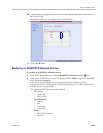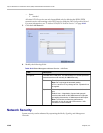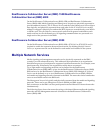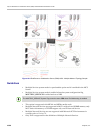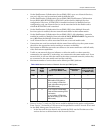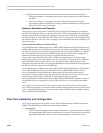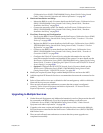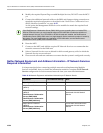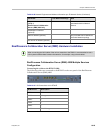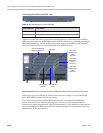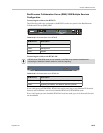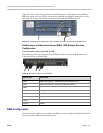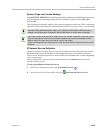
Polycom RealPresence Collaboration Server (RMX) 1500/2000/4000 Administrator’s Guide
16-52 Polycom, Inc.
• Participants are associated with a Network Service and use it resources as follows:
— Dial-in participants - according to the network used to place the call and connect to
the RMX.
— Dial-out participant - according to the Network Service selected during the
participant properties definition or during conference definition, according to the
Network Service selected as default.
Resource Allocation and Capacity
The Video/Voice Port Configuration and the Resolution Configuration settings are configured
per MCU and affect the resource capacity of the MCU. They are reflected in the port gauges
displayed on the RMX management application’s main screen. In Multiple Networks mode,
the overall resources as configured in the Video/Voice Port Configuration are divided between
the Network Services. However, the port gauges do not reflect the resource availability per
Network Service.
Fixed and Flexible Resource Allocation Mode
On the RealPresence Collaboration Server (RMX) 2000/RealPresence Collaboration Server
(RMX) 4000 resources are divided between services according to the number of media cards
associated with each service and the card assembly type (for example, MPMx-s vs. MPMx-
D). If two identical media cards are installed in the system and each card is assigned to a
different Network Service, the resources are split between the services.
If two cards are installed but each card is of different assembly type, the resources are
allocated according to the card capacity ratio. For example, in a system with one MPMx-S
and one MPMx-D, the capacity ratio is 1 to 2, therefore a third of the resources will be
assigned to the network service associated with MPMx-S and two thirds will be assigned to
the Network Service associated with MPMx-D.
On the RealPresence Collaboration Server (RMX) 1500 and the RealPresence Collaboration
Server (RMX) 2000/RealPresence Collaboration Server (RMX) 4000 with two Network
Services associated with one media card, the resources of the two Network Services
associated with one media card are not split between the network services. In such a case,
resources are used per their availability by both Network Services equally.
On the RealPresence Collaboration Server (RMX) 2000, if RTM ISDN is installed and used
for Multiple Services configuration, only one Network Service can be defined per media
card.
In Fixed Resource Allocation Mode if the resources cannot be divided into whole numbers,
they will be rounded up to the nearest whole number, assigning that resource to the Network
Service with the higher capacity (i.e. more media cards or media cards with higher capacity
due to a different card assembly).
First Time Installation and Configuration
First Time Installation and Configuration of the Polycom RealPresence Collaboration Server
(RMX) 1500/2000/4000 consists of the following procedures:
1 Preparations
— Gather Network Equipment and Address Information - get the information needed
for integrating the RMX into the local network for each of the networks that will be
connected to the RMX unit. For a list of required address, see the RealPresence



